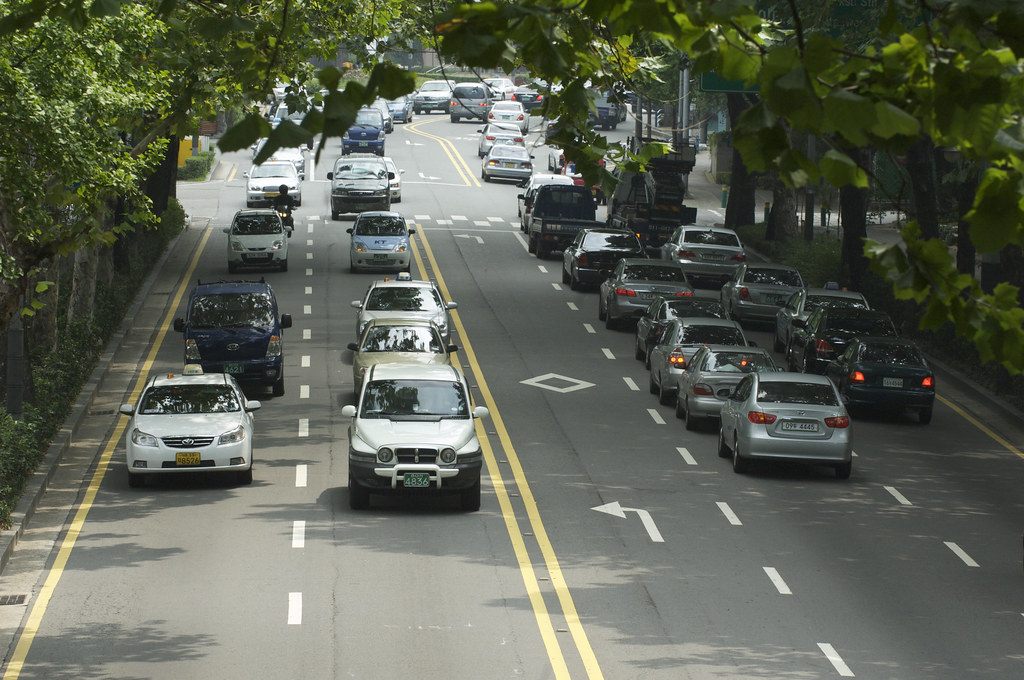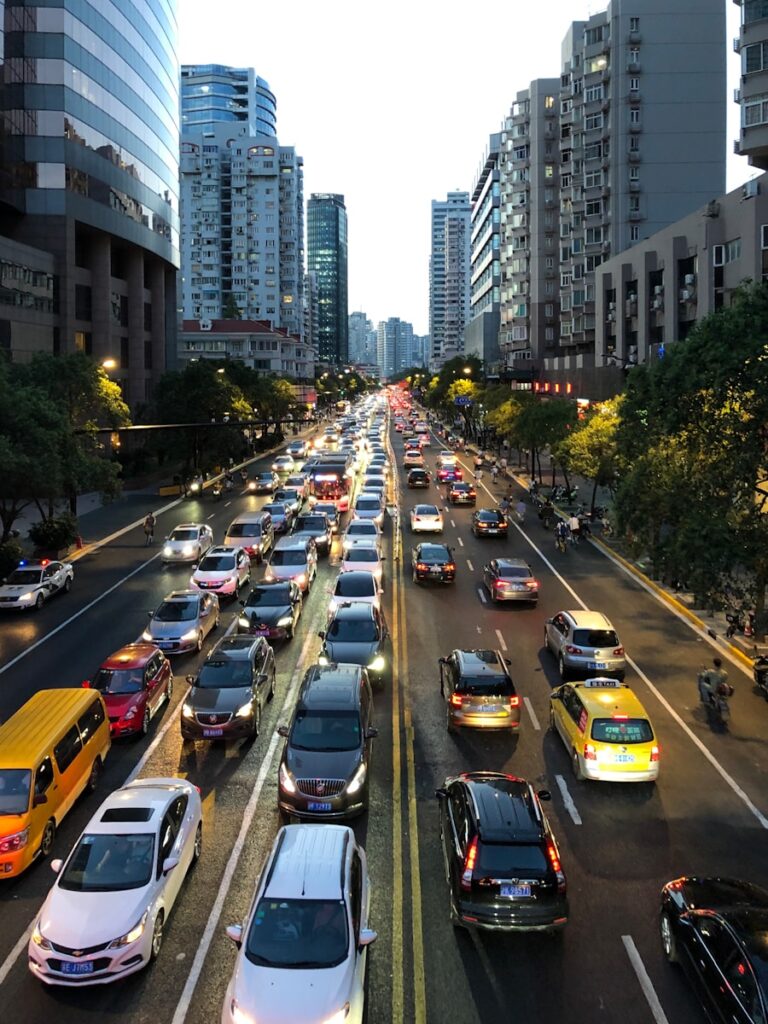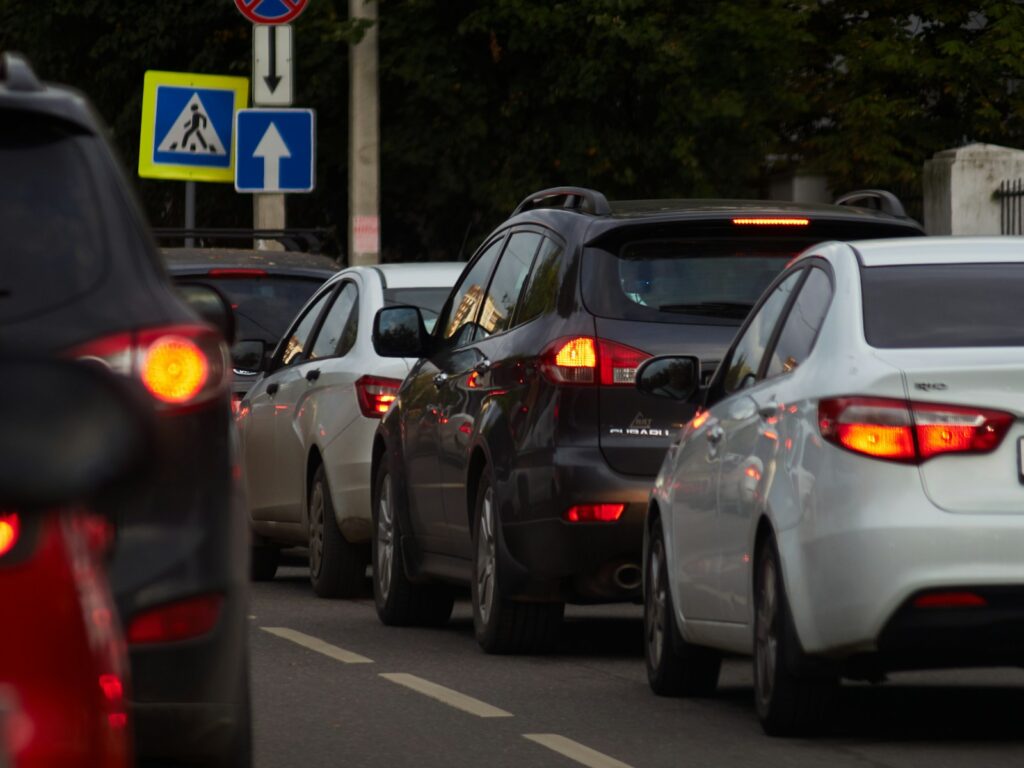
Receiving a traffic ticket can feel like an immediate financial blow, often accompanied by the looming threat of rising insurance premiums and points on your driving record. It’s a common misconception that paying the fine is the simplest and only solution, a regrettable act that many drivers commit without fully understanding their legal options. This immediate payment, however, is a direct admission of guilt, locking in all those negative consequences you were trying to avoid.
The truth is, most drivers don’t realize they have powerful legal rights to contest citations, and with the right strategy, you can often get your ticket completely dismissed or significantly reduced. Fighting your ticket is almost always worth it. Even if you don’t win outright, you still protect your right to traffic school, which can save you thousands in insurance hikes over time, keeping your driving record clean and your wallet happier.
This comprehensive guide, informed by the insights of experienced professionals, breaks down 14 smart strategies to challenge your California traffic tickets in 2025. We’ll empower you with actionable advice, from understanding your plea options and gathering critical evidence to navigating court procedures and leveraging powerful defense mechanisms. Prepare to transform that daunting ticket into an opportunity for a favorable outcome.

1. **Understand Your Legal Rights and Plea Options**When faced with a traffic citation, your initial response sets the stage for everything that follows. California law provides you with multiple avenues to fight back, but first, it’s crucial to understand the implications of each plea option presented to you. Paying a ticket outright, for instance, is unequivocally considered pleading guilty, which immediately adds points to your DMV record and can trigger significant financial penalties.
The three main plea options are guilty, not guilty, and no contest. A guilty plea is a direct admission of fault for the violation, concluding the case and requiring you to pay the associated fines and court costs. This conviction will be entered on your driving record, likely resulting in points and a potential increase in your insurance rates, and can even affect employment in some cases.
Conversely, a plea of not guilty formally communicates to the court that you are challenging the citation. This action initiates a court hearing where you will have the opportunity to present your case. Choosing this path means you dispute the facts as presented by the issuing officer and wish for a judge to hear the evidence, offering you a chance at dismissal or a more favorable outcome.
The third option, “no contest” or “nolo contendere,” allows you to accept the court’s conviction and associated penalties without admitting guilt. The primary benefit here is that it cannot be used as an admission of guilt in a related civil lawsuit, which might arise from a traffic accident. While the court must approve a no-contest plea, it serves as a valuable middle ground for those who wish to avoid an explicit admission of wrongdoing.
Read more about: Are You Driving a ‘Show-Off’ Vehicle? The Top 10 Car Brands Prone to Speeding Tickets

2. **Take Immediate Actions (Within 21 Days)**The moments immediately following receiving a traffic citation are critical, as time-sensitive actions can significantly impact your ability to fight the ticket successfully. The first and most vital rule: don’t pay online if you plan to fight, as this counts as pleading guilty and closes your window of opportunity. Ignoring the ticket altogether is also a grave mistake, leading to automatic license suspension, hefty fees, and potentially even a bench warrant.
Within 21 days of receiving your ticket, you should be proactive in gathering crucial initial evidence. This includes taking clear photographs of the location where the violation occurred, capturing details like the roadway, relevant traffic signs, potential line-of-sight obstructions, and the general weather and road conditions. These visual records can be instrumental in demonstrating that a sign was not visible or that environmental factors played a role.
Beyond photographs, secure any dashcam or GPS evidence that might corroborate your version of events, such as your actual speed or the vehicle’s position. If there were any witnesses, immediately write down their contact information and statements. Additionally, it is highly beneficial to write down a detailed personal account of the incident right away, documenting the time, traffic flow, your actions, and any statements made by the officer to preserve your memory for the hearing.
Finally, within this crucial 21-day window, you need to decide on your primary strategy: pursuing a Trial by Written Declaration, requesting an In-Person Court Trial, or electing for Traffic School if dismissal seems unlikely. This initial decision-making and evidence collection phase lays the groundwork for a robust defense, helping you avoid escalating fees and severe consequences from missing deadlines.

3. **Gather Comprehensive Evidence for Your Case**Contesting a speeding ticket effectively hinges on collecting thorough and compelling evidence. A strong speed limit violation appeal is built upon solid proof, and drivers have many proactive ways to bolster their defense against traffic citations. Studies indicate that a significant 30% to 50% of contested tickets result in reduced penalties or outright dismissal when supported by strong evidence.
Your evidence collection should begin as soon as possible after receiving the ticket. Critical forms of evidence include photographs of the location where the violation occurred, which can visually support claims about sign visibility or road conditions. Dashcam footage is another powerful tool, capable of capturing actual driving conditions, your speed, and the overall context of the incident, offering an objective perspective often missing from officer testimony.
Witness statements can provide independent corroboration of your account, adding credibility to your defense. Furthermore, don’t overlook technical documentation: maintenance and calibration records for speed detection equipment, such as radar or lidar guns, can be pivotal. If these records reveal the equipment was not properly calibrated or maintained, it can cast serious doubt on the accuracy of the speed reading.
Beyond direct evidence, you can also seek information from the prosecution through a process known as “discovery.” This involves formally requesting a copy of the citing officer’s notes, which may reveal inconsistencies or a lack of detail. Requesting official road signage documentation can also prove useful if your defense involves challenging the clarity or presence of speed limit signs. The more comprehensively you document your case, the stronger your position will be in court.
Read more about: 14 Simple Ways to Use ChatGPT to Craft a Professional Resume
4. **Examine the Ticket for Errors**One of the simplest yet most effective ways to challenge a traffic ticket is by thoroughly examining it for any errors. Even minor mistakes on the citation can provide grounds for dismissal or reduction of fines. It’s an often-overlooked tactic, but one that statistically favors drivers; research shows that roughly 25% of traffic tickets contain mistakes that could potentially lead to their dismissal.
When scrutinizing your ticket, focus on several key areas where inaccuracies commonly occur. These include the accuracy of your vehicle information, such as the license plate number or vehicle make and model, as well as the verification of your personal details, including your name and address. Precision in the date and time of the violation is also crucial, as is the exact location and speed zone specifications cited by the officer.
Beyond these, pay close attention to the officer’s citation details. This involves checking for incorrect traffic law citations or any discrepancies in the recorded speed measurement. Factual errors like a misspelled driver’s name, the wrong vehicle description, or an inaccurate speed reading can significantly weaken the prosecution’s case and bolster your argument for dismissal.
In states like California, finding mistakes on a ticket can be a powerful defense, with statistics indicating that “over 80% of drivers win by finding mistakes.” A single significant error can render the entire ticket invalid, saving you from fines, points, and insurance hikes. For a professional tip, meticulously track every mistake you find, photograph the ticket, clearly mark the errors, and prepare a concise explanation for the court. Your careful, detailed work might be the key to getting your fine dismissed.
Read more about: Stop the Drain: 14 Critical Retirement Pitfalls That Turn Savings into Costly Money Pits After Age 60
5. **Understand Your State’s Specific Laws**Navigating the nuances of traffic law is a critical step in building an effective defense, as “speeding ticket laws change a lot from state to state.” What might be a valid defense in one jurisdiction could be irrelevant in another. To effectively plead not guilty and win your case, you need to do your homework and plan well, understanding the specific rules that govern traffic violations where your ticket was issued.
Every state has its own framework for handling traffic infractions and the legal defenses available. To significantly improve your chances of winning a speeding ticket case, you must consider a few important, state-specific elements. These include the precise interpretation rules for posted speed limits, local enforcement standards that officers are expected to follow, and the specific legal defenses that are recognized within that jurisdiction. You also need to be aware of any unique evidence requirements that local courts may have.
One of the most common areas of variation lies in speed limit interpretation. Some states operate under absolute speed limits, where exceeding the strict numerical limit is a direct violation. Others employ presumed speed limits, meaning your speed is only a violation if it’s deemed unsafe for the prevailing conditions. The basic speed law, prevalent in many areas, dictates that speed must always be reasonable and prudent for the road conditions, regardless of the posted limit.
Effective defense preparation begins with thorough research. Drivers should delve into state department of motor vehicles websites, utilize local court resources, and consult official state legal databases to understand the specific regulations applicable to their situation. While only 3-5% of speeding tickets are fought in court, approximately 50% of those contested cases result in dismissal or lowered penalties. Knowing your state’s specific rules, therefore, can significantly empower you to win your case.
Read more about: Unpacking the Emissions Gauntlet: 11 Controversial Laws Shaping the Future of Classic Cars

6. **Utilize Trial by Written Declaration (TR-205)**For California drivers, the Trial by Written Declaration (TR-205) stands out as “hands down the most effective option” for disputing a traffic ticket, boasting impressive dismissal rates as high as 79–100% for certain violations. This method allows you to submit your defense in writing, eliminating the need for an in-person court appearance, which saves both time and stress.
The process for a Trial by Written Declaration is straightforward. You must submit Form TR-205 along with your bail payment before your ticket’s due date. In your submission, you’ll need to write a clear, factual defense statement, supported by any evidence you’ve gathered, such as photographs or diagrams. Crucially, the citing officer is also required to submit their own written statement in response to your defense.
This method often works wonders because officers frequently do not bother filing their paperwork. If the citing officer fails to submit their written statement by the deadline, your case is automatically dismissed, and your bail payment is refunded in full. This technicality provides a powerful advantage, as it relies on the officer’s adherence to procedural requirements rather than direct evidence of your innocence.
The success rates for Trial by Written Declaration are compelling: 100% for speeding in construction zones, 92% for basic speed law (VC 22350) violations, 85% for red light violations, and 79% for stop sign violations. These figures highlight why this method is often referred to as a “secret weapon” for drivers seeking dismissal, underscoring its potential effectiveness across a range of common traffic infractions.
When preparing your written defense, remember a key pro tip: focus rigorously on facts, not excuses. Your statement should challenge officer errors, question equipment calibration, or address signage compliance, rather than offering justifications for your speed. By meticulously detailing technical weaknesses and procedural flaws, you significantly increase your chances of achieving a dismissal through this powerful, written defense strategy.
7. **Opt for an In-Person Court Trial**If a Trial by Written Declaration isn’t your preferred route, or if you lose your initial written defense, requesting an in-person court trial provides a valuable opportunity to fight your ticket face-to-face. This option allows you to directly engage with the court and the citing officer, offering a different dynamic for presenting your case and challenging the citation. It’s a second chance to clear your record, especially after a Trial de Novo request.
Choosing an in-person trial comes with several distinct advantages. You gain the ability to cross-examine the officer, directly questioning their observations, methods, and the accuracy of their equipment. This direct confrontation can sometimes reveal inconsistencies or weaknesses in their testimony that might not surface in a written statement. Furthermore, you can present physical evidence and bring witnesses to support your story in person, allowing for a more impactful presentation.
This format is particularly best suited for cases involving witnesses who can back your story, providing independent accounts of the incident. It is also ideal for situations where equipment malfunctions – such such as radar or lidar devices – are at play, allowing you to present expert testimony or detailed calibration records. Complex disputes where your credibility is a central factor, or cases involving emergencies and unusual circumstances, can often benefit from the direct interaction and detailed explanation possible in court.
When you arrive at the courthouse for your hearing, showing respect for the court is paramount. Arrive early and dress professionally to make a favorable impression. Traffic hearings are typically decided by a judge, not a jury, and follow a structured procedure. The proceedings will begin with the officer or a prosecutor presenting the case against you, usually involving the officer’s testimony detailing the violation.
Following the officer’s testimony, you will have your opportunity to cross-examine them. Ask direct and respectful questions, focusing on evidence you’ve gathered, such as the officer’s vantage point or the radar unit’s last calibration date. After cross-examination, you will present your own evidence and testimony. Stick to facts, speak clearly and confidently, and always address the judge as “Your Honor.” This structured approach allows you to highlight potential weaknesses in the prosecution’s case and present your narrative effectively.
Now that you’ve navigated the crucial initial steps and foundational legal understanding, it’s time to equip yourself with advanced defense tactics that can truly make a difference in your fight against a traffic ticket. These strategies move beyond the basics, leveraging deeper legal insights, technological advantages, and astute courtroom approaches to give you the best possible chance at dismissal or reduction. Remember, the goal is to empower you to challenge your citation effectively and protect your driving record.
Read more about: Encountering the Unconventional: An In-Depth Look at Tesla’s Cybertruck and the Engineering Philosophy Behind It
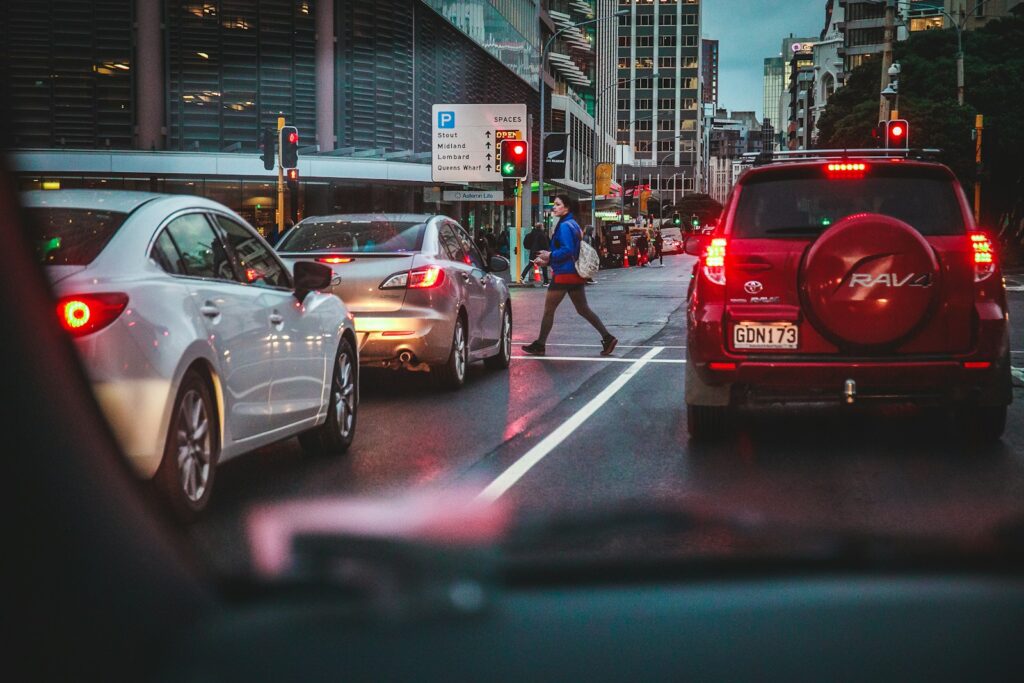
8. **Leverage Traffic School for Insurance Protection**Even if outright dismissal seems like a long shot, or if your initial defense doesn’t go as planned, traffic school offers a powerful safety net. This option is designed to keep the violation off your insurance record, which is a massive financial benefit. While you’ll still pay the fine, avoiding insurance premium hikes can save you thousands of dollars over several years, making it a pragmatic choice for long-term financial protection.
Eligibility for traffic school typically requires you to have a valid California license (non-commercial), be cited for a one-point moving violation, and not have attended traffic school within the past 18 months. Crucially, the violation must not involve speeding 25+ mph over the limit or be linked to alcohol or drug involvement. Confirming these criteria early can save you from potential disappointment.
While attending traffic school incurs costs—typically a court fee of around $52 and a course fee between $15–$45, totaling $67–$97—the savings are substantial. On average, drivers can save over $3,500 in insurance increases over a three-year period. This makes traffic school a financially savvy decision, safeguarding your wallet from the ripple effects of a minor traffic infraction.
Read more about: Navigating Teen Driver Insurance: 11 Essential Tips for Securing the Best Rates for Your Young Driver
9. **Master Advanced Defense Strategies**To truly dismantle a traffic citation, you need a toolkit of advanced defense strategies that challenge the core of the prosecution’s case. These strategies go beyond simple technicalities, focusing on the accuracy of equipment, the officer’s procedure, the factual circumstances of the incident, and even specific legal nuances that can swing a case in your favor. Knowing these can transform your defense from hopeful to formidable.
One potent area is **Equipment & Calibration Defenses**. Many traffic tickets rely on speed detection devices like radar or lidar guns. Your defense can hinge on requesting and scrutinizing the calibration records for these devices, officer training certificates, and even proving that poor weather conditions might have interfered with their readings. If the equipment wasn’t properly maintained or operated, the accuracy of the speed measurement becomes questionable.
Next are **Procedural Defenses**, which target errors made by the officer during the ticketing process. This could include instances where the officer filled out the ticket incorrectly, cited the wrong Vehicle Code, or even operated outside their legal jurisdiction. Any procedural misstep can weaken the prosecution’s case significantly, making a dismissal more likely if effectively highlighted.
**Factual Defenses** allow you to present an alternative narrative of the event. This might involve demonstrating that you were engaged in an emergency maneuver, that the officer misidentified your vehicle in heavy traffic, or that unsafe road conditions necessitated your actions. These defenses require strong evidence and a clear, credible explanation of your specific circumstances.
Finally, **Technical Defenses** capitalize on specific legal requirements or new laws. This could involve challenging whether speed limits were properly posted, questioning yellow light timing violations, or pointing out improper signage in construction zones. In 2025, new laws like the Daylighting Law (parking within 20 feet of a crosswalk) and Plate Obstruction Law (AB 2111) offer fresh grounds for defense, especially where unclear signage or manufacturer defects regarding plate coatings are at play. Leveraging these specific legal points can be incredibly powerful.
Read more about: Beyond the Grind: 15 Proven Tricks Long-Haul Truckers Use to Master Alertness and Focus on the Road
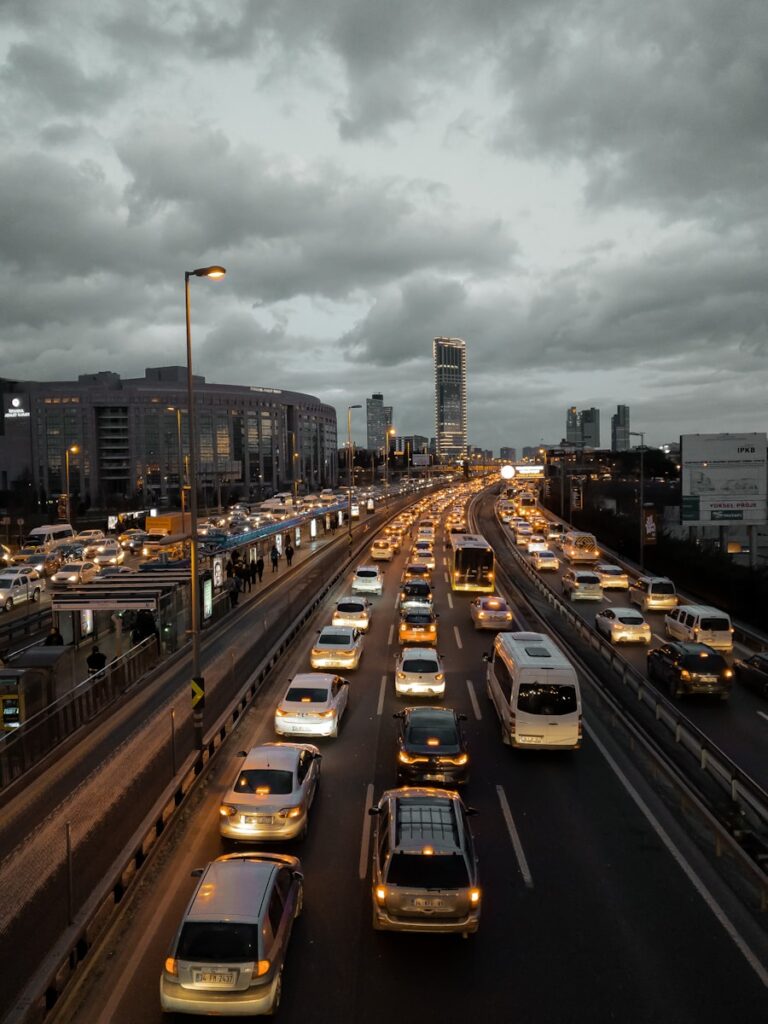
10. **Harness Technology for Evidence and Defense**In today’s digital age, technology isn’t just a tool for law enforcement; it’s a powerful ally for drivers fighting traffic tickets. Utilizing readily available tech can provide objective, irrefutable evidence that traditional methods simply can’t match, often turning a he-said-she-said scenario into a fact-based argument that can win your case.
**Dashcam footage** stands out as critical evidence. Your dashcam can capture actual driving conditions, your speed, and the overall context of an incident, providing an objective perspective often missing from officer testimony. High-resolution video with clear date and time stamps, covering the entire incident, can prove your speed, show road conditions, and even demonstrate your precise vehicle behavior leading up to or during the alleged violation.
Beyond dashcams, **GPS tracking data** from your phone or vehicle can offer precise speed and location verification, directly contradicting an officer’s estimation or radar reading. Similarly, gaining **speed radar technology insights** by understanding how police devices (radar, laser speed detectors, stationary speed cameras, mobile tracking units) work – and their potential for error – can inform a strong defense focusing on calibration and maintenance records.
With **speed cameras** rolling out in seven California cities, these automated tickets, ranging from $50–$500, often present unique defense opportunities. Defenses typically involve challenging the calibration and maintenance records of the cameras themselves. By meticulously gathering and presenting this technological evidence, you significantly strengthen your position against an infraction. Make sure your tech is reliable, well-maintained, and ready to be a star witness in your defense.
Read more about: Beyond Instinct: 14 Cutting-Edge Ways Pro Athletes Engineer Victory Through Data Analytics

11. **Negotiate for Favorable Outcomes**Many drivers overlook the power of negotiation, often assuming a traffic ticket is a fixed outcome. However, prosecutors frequently seek to resolve cases quickly and efficiently, creating an opportunity for you to negotiate for reduced charges, lower fines, or alternative solutions. Engaging in a polite yet firm negotiation can yield significant benefits and help keep your driving record cleaner.
Effective negotiation begins with thorough preparation. Before you even speak to a prosecutor, have all your evidence meticulously organized and ready to present. Maintaining a calm, polite, and professional demeanor is crucial, as this builds rapport and encourages a more cooperative discussion. Be ready to discuss possible deals, but also be prepared to present the complexities of your case, hinting at potential weaknesses in the prosecution’s evidence without revealing your entire defense strategy.
Successful negotiations can lead to several favorable outcomes. Charges might be reduced from a high-point moving violation to a lower-point infraction, or even to a non-moving violation like an equipment violation or parking ticket. This could mean fewer points on your license, smaller fines, or even the chance to attend traffic school instead of receiving points. Some courts may also consider community service as an alternative to fines.
Crucially, never admit guilt outright during negotiations. See the discussion as a strategic way to mitigate the consequences and protect your driving record. Knowing your local traffic laws and having a strong case, even if you don’t fully reveal it, positions you favorably. This proactive approach can effectively reduce fines and safeguard your driving privileges.
Read more about: The 14 Most Important Negotiation Lessons from 15 Famous Historical Figures

12. **Ace Your In-Person Court Presentation**An in-person court trial is your direct stage to challenge a traffic ticket, and how you present yourself and your case can significantly influence the judge’s decision. This isn’t just about the facts; it’s about credibility, professionalism, and effectively communicating your narrative. Mastering courtroom presentation skills is paramount for achieving a favorable outcome.
Preparation for court goes beyond just gathering evidence. Dress professionally and respectfully, as this signals your seriousness and respect for the court. Arrive early to familiarize yourself with the courtroom environment. When it’s your turn, speak clearly and confidently, addressing the judge as “Your Honor.” Your demeanor and presentation reflect directly on your credibility, so maintain composure even under questioning.
Structuring your legal argument clearly and factually is essential. Focus on challenging the accuracy of speed measurement devices, highlighting any procedural mistakes made by the officer, or offering alternative explanations supported by your evidence. About 20-30% of cases might even get dismissed if the citing officer fails to appear, but don’t rely solely on this possibility.
During the proceedings, you’ll have the opportunity to cross-examine the officer. Ask direct, respectful questions based on your gathered evidence, focusing on points like the officer’s vantage point or the radar unit’s last calibration date. Organize your evidence systematically, making it easy for the judge to follow your arguments. Being believable and well-prepared are your strongest assets in court, demonstrating that you’ve done your homework and are committed to your defense.
Read more about: Mastering Virtual Presence: 12 Subtle Zoom Meeting Mistakes That Undermine Your Professional Image

13. **Recognize When Professional Legal Help is Essential**While self-representation is a viable path for many traffic tickets, certain complex situations warrant the expertise of a legal professional. Knowing when to call in the cavalry can be the difference between a minor setback and a major blow to your driving record and finances. It’s about weighing the pros and cons and understanding the stakes.
Self-representation offers potential cost savings and direct control over your case, but it comes with a higher risk, especially if you have limited knowledge of legal loopholes or court procedures. Statistics show that while 43% of self-represented drivers successfully contested their tickets, a lawyer can spot crucial legal moves and technical defenses that most drivers miss, potentially increasing your chances of dismissal.
Consider hiring professional help if your case involves: multiple prior violations; the potential for license suspension; holding a Commercial Driver’s License (CDL), where even minor violations can jeopardize your livelihood; or if you’ve received multiple tickets at once. Additionally, if you simply don’t have the time to thoroughly study court rules and prepare a robust defense, a lawyer can be invaluable.
For instance, while ClerkHero prepares winning defenses for as low as $79, comparing that to the average $3,800–$4,000 in insurance hikes over three years for an uncontested ticket clearly illustrates the significant financial benefit of professional assistance. For complex scenarios where your driving record, employment, or significant costs are at stake, investing in expert legal representation can be a wise and cost-effective decision.
Read more about: Beyond the Grind: 15 Proven Tricks Long-Haul Truckers Use to Master Alertness and Focus on the Road

14. **Safeguard Your Driving Record Long-Term**Fighting a traffic ticket isn’t just about the immediate fine; it’s a strategic move to protect your driving record and financial well-being for the long haul. The consequences of an uncontested ticket extend far beyond a single payment, impacting your DMV points, potential license suspension thresholds, and critically, your insurance premiums for years to come.
Understanding the **DMV points** system is vital: most violations result in 1 point, while serious offenses like reckless driving accumulate 2 points. These points aren’t just numbers; they directly contribute to **suspension thresholds**. Accumulating 4 points in 12 months, 6 in 24 months, or 8 in 36 months can lead to the suspension of your driver’s license, severely impacting your mobility and daily life.
The **insurance impact** is perhaps the most significant long-term financial burden. Even a single ticket can raise your rates dramatically, with increases ranging from 18% with some insurers like Allstate to a staggering 61% with others like Geico. Fighting your ticket, even if you only secure traffic school, is a powerful way to mitigate these steep and recurring costs, saving you thousands over time.
To ensure long-term protection, also remember **what NOT to do**: never pay online if you plan to fight, as it’s an admission of guilt. Do not miss deadlines, as 21 days is the standard response time. Avoid writing excuses in your defense; stick strictly to facts. And critically, never ignore a ticket, as this triggers additional $100+ fees, automatic license suspension, and possible bench warrants. These missteps can undermine all your efforts to keep your record clean.
Finally, be aware of **special situations** like financial hardship. If paying the fine poses an undue burden, you can often request reduced fines, explore payment plans, or even offer community service as an alternative. Continuously monitor your DMV record and insurance policy to proactively address any changes. By understanding these long-term ramifications and acting strategically, you empower yourself to keep your driving record pristine and your insurance costs manageable.
Read more about: Fort Knox on Wheels: The Ultimate Guide to 15 Anti-Theft Devices That Keep Your Classic Car Safe and Sound
Navigating the complexities of a traffic ticket might seem daunting, but as this guide, informed by seasoned legal insights, clearly shows, you have powerful options. From understanding your plea choices and meticulously gathering evidence to employing advanced defense tactics and knowing when to call in professional help, every step you take can lead to a more favorable outcome. Remember, a traffic ticket isn’t an unchangeable verdict; it’s an invitation to assert your rights and protect your driving future. Empower yourself, get informed, and take control—your clean record and your wallet will thank you.

